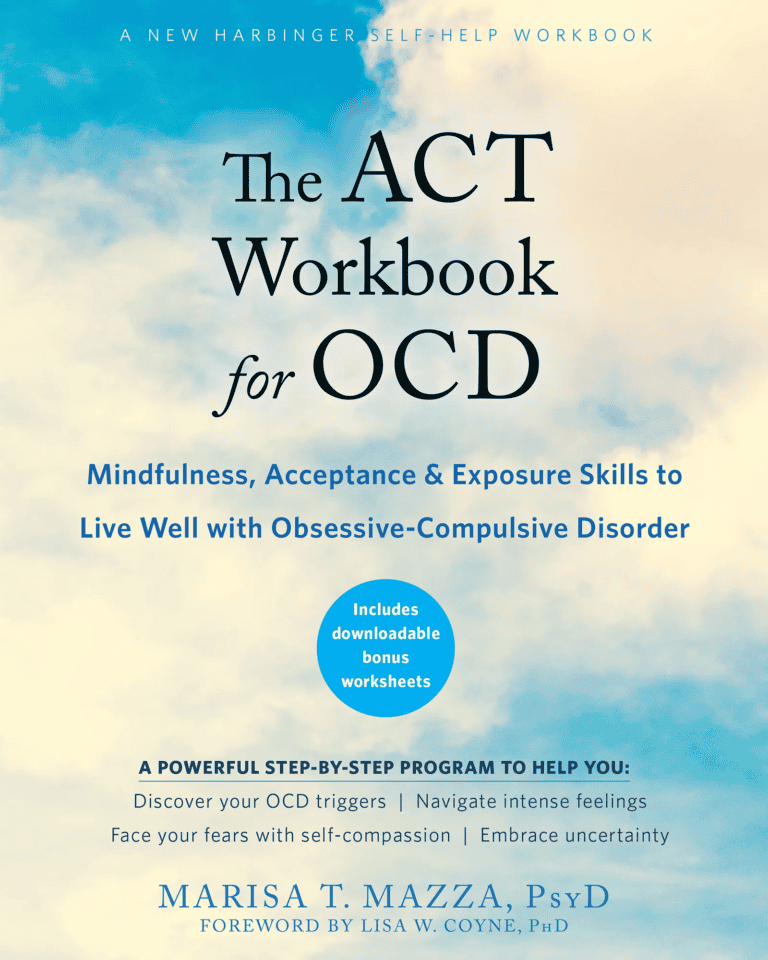The Impact of Exercise on OCD

Obsessive-Compulsive Disorder (OCD) is a common mental disease characterized by intrusive thoughts, repetitive behaviors, and the persistent urge to perform certain rituals or routines.
While traditional treatments such as therapy and medication are effective for many individuals, emerging research suggests that incorporating regular exercise into an OCD management plan can provide significant benefits for mental health outcomes and overall well-being.
Understanding OCD
Obsessive-Compulsive Disorder (OCD) is classified as an anxiety disorder and is characterized by two main components: obsessions and compulsions. Obsessions are intrusive thoughts, images, or urges that repeatedly enter the individual’s mind, causing distress and anxiety.
Compulsions are repetitive behaviors or mental acts performed in response to obsessions, aimed at reducing anxiety or preventing a feared outcome.
Living with OCD can significantly impact daily life, affecting relationships, work, and overall well-being. While therapy and medication are standard treatments for managing obsessive compulsive disorder symptoms, research suggests that incorporating regular exercise into a daily routine can complement traditional interventions and contribute to symptom reduction.
The Role of Exercise in OCD Management
Exercise, including both aerobic exercise and strength training, has been shown to have a positive impact on mental health outcomes, including anxiety disorders like OCD.
Numerous studies, including meta-analyses and systematic reviews, have demonstrated the beneficial effects of regular physical activity on reducing OCD symptom severity and improving overall well-being.
Reduction of Anxiety and Stress
Engaging in regular physical exercise has been found to reduce anxiety and stress levels, both of which are commonly heightened in individuals with OCD.
Aerobic exercise, such as running, swimming, or cycling, can help regulate heart rate and cortisol levels, leading to a calmer state of mind.
Additionally, strength training exercises can promote relaxation and reduce muscle tension, further contributing to stress reduction.
Distraction from Obsessive Thoughts
Exercise provides a healthy distraction from obsessive thoughts by engaging the individual in physical activity and redirecting their focus away from intrusive thoughts.
Whether it’s going for a jog, practicing yoga, or roller skating, engaging in enjoyable physical activities can interrupt the cycle of rumination and provide temporary relief from obsessive thinking.
Improvement in Mood and Well-being
Regular exercise is associated with improvements in mood, self-esteem, and overall well-being. Physical activity stimulates the release of endorphins, neurotransmitters that promote feelings of happiness and well-being.
Engaging in activities that you enjoy, such as hiking, dancing, or yoga, can enhance mood and foster a sense of accomplishment and satisfaction.
Enhancement of Cognitive Functioning
Exercise has been shown to improve cognitive functioning, including attention, memory, and executive function.
These cognitive benefits are particularly relevant for individuals with OCD, as they can help enhance cognitive flexibility and reduce cognitive rigidity.
Engaging in activities that challenge the mind, such as learning a new dance routine or practicing mindful meditation, can improve cognitive functioning and reduce OCD symptom severity.
Practical Tips for Incorporating Exercise into OCD Management

Integrating exercise into an OCD management plan requires careful consideration and planning. Here are some practical tips for incorporating exercise into your daily routine:
Start Slowly and Set Realistic Goals
Begin with low-intensity activities and gradually increase the duration and intensity of your workouts as your fitness level improves. Set realistic goals that align with your abilities and schedule, and celebrate your progress along the way.
Choose Activities You Enjoy
Select physical activities that you find enjoyable and fulfilling. Whether it’s going for a walk in nature, practicing yoga, or playing a sport, choose activities that you look forward to and that fit your interests and preferences.
Prioritize Consistency
Consistency is key when it comes to reaping the mental health benefits of exercise. Aim for regular, moderate-intensity workouts, and make physical activity a consistent part of your daily routine.
Listen to Your Body
Pay attention to how your body responds to exercise and adjust your routine accordingly. If you experience pain or discomfort, take a break and allow your body time to rest and recover.
Incorporate Variety
Keep your exercise routine interesting and engaging by incorporating a variety of activities, such as cardio, strength training, flexibility exercises, and mind-body practices like yoga or tai chi.
Seek Professional Guidance
Consult with a healthcare professional, such as a therapist or physician, before starting a new exercise program, especially if you have any underlying health conditions or concerns. They can provide personalized recommendations and ensure that your exercise routine is safe and effective for managing OCD symptoms.
Additional Insights on OCD and Exercise

Clinical Practice and Treatment Options
In clinical practice, incorporating exercise into OCD treatment plans is gaining recognition as an effective adjunct therapy.
Research studies, including controlled trials and meta-analyses, have demonstrated the positive impact of exercise on reducing OCD symptoms and improving overall well-being.
Response prevention, a common therapeutic approach in OCD treatment, can be complemented by engaging in regular physical activity to reduce anxiety and compulsive behaviors.
Healthy Lifestyle Choices
In addition to exercise, adopting a healthy diet and prioritizing sleep are essential components of managing OCD and promoting overall well-being.
A balanced diet rich in fruits, vegetables, whole grains, and lean proteins can support brain health and reduce inflammation, while adequate sleep is crucial for cognitive functioning and emotional regulation.
By integrating exercise, healthy eating, and quality sleep into their daily routine, individuals with OCD can optimize their mental health outcomes and enhance their overall quality of life.
Holistic Approaches to OCD Management
In recent years, there has been growing interest in holistic approaches to mental health care, including the integration of mind-body practices such as yoga, meditation, and mindfulness.
These practices can complement traditional OCD treatments by promoting relaxation, reducing stress, and increasing self-awareness. Research studies and narrative reviews have highlighted the beneficial effects of mind-body interventions on reducing OCD symptoms and improving mood and well-being.
The Role of Healthcare Professionals
Healthcare professionals, including psychiatrists, therapists, and primary care providers, play a vital role in supporting individuals with OCD in incorporating exercise into their treatment plans.
Private practice clinicians and chief clinical officers can collaborate with their patients to develop personalized exercise routines that align with their preferences, abilities, and treatment goals.
By providing guidance, encouragement, and ongoing support, healthcare professionals can empower individuals with OCD to take proactive steps towards managing their symptoms and improving their quality of life.
Research and Future Directions
While existing research provides compelling evidence for the benefits of exercise in managing OCD, further studies are needed to explore the mechanisms underlying these effects and to identify optimal exercise interventions for different subtypes of OCD.
Future pilot studies and controlled trials should investigate the effects of specific exercise modalities, such as moderate intensity aerobic exercise, strength training, and mind-body practices, on OCD symptoms, cognitive functioning, and quality of life.
By advancing our understanding of the relationship between exercise and OCD, researchers can inform clinical practice and enhance treatment outcomes for individuals with this challenging disorder.
Conclusion: Empowering Individuals with OCD Through Exercise
Incorporating moderate aerobic exercise into an OCD management plan can be an effective and empowering way to reduce symptoms, improve mood, and enhance overall well-being. By engaging in physical activities that promote relaxation, distraction, and cognitive stimulation, individuals with OCD can take proactive steps towards managing their symptoms and reclaiming control over their lives.
Whether it’s going for a run, practicing yoga, or participating in a group fitness class, finding joy and fulfillment in movement can be a transformative aspect of the recovery journey.
By prioritizing self-care, consistency, and self-compassion, individuals with OCD can harness the power of exercise to promote brain health, reduce anxiety, and cultivate a greater sense of balance and well-being in their daily lives.
In summary, exercise is not only an effective way to improve physical health but also a valuable tool for managing OCD symptoms and promoting overall mental well-being. By incorporating regular physical activity into your daily routine and exploring different forms of exercise that resonate with you, you can take proactive steps towards managing your OCD and living a happier, healthier life.





